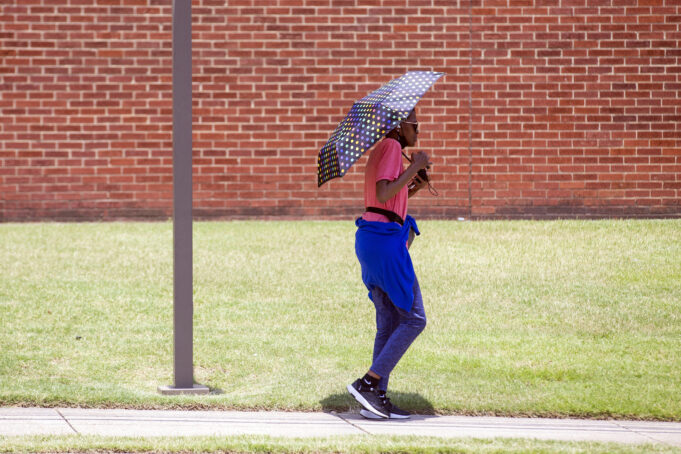As dangerous heat and humidity smothered parts of the South and Midwest, local governments and charities worked to protect poor and elderly residents by opening cooling stations and delivering donated air conditioners.
At presstime, in Florida, where heat index levels of up to 112 degrees were forecast over the next several days, the Christian Service Center set up an “extreme heat cooling center” in Orlando for homeless people and others who don’t have access to air conditioning.
“You or I complain about the heat or have to deal with it as we walk from our car to the grocery store or from our car to the air-conditioned office, but for the people we see here on campus, they wake up to that every day,” Bryan Hampton of the Christian Service Center told WESH-TV.
The heat wave has contributed to at least 13 deaths in Texas and one in Louisiana. Forecasters said temperatures could rocket up to 20 degrees above average in some areas as a heat dome that has taxed the Texas power grid spread eastward.
The National Weather Service issued an excessive heat warning for parts of Arkansas, Louisiana, Mississippi and Tennessee for June 29 and June 30. Less urgent heat advisories covered a wider area that included parts of Missouri, Kansas, Kentucky, Indiana and Illinois. The heat index, which indicates how hot it feels outdoors based on the temperature and relative humidity, was expected to reach 115 degrees in several cities.
It was an added weather-related woe for some Tennessee residents who still had no power after storms on June 25 knocked down trees and power lines.
Louisiana already has been plagued by hot weather over the past month. Between May 12 and May 24, more than 680 went to the hospital for heat-related illness, based on the most recent figures from the state Department of Health. These illnesses can range in severity from mild, such as heat rash and heat cramps, to severe, such as heat exhaustion and heatstroke.
In St. Louis, where smoke from Canadian wildfires has combined with the heat and humidity to worsen air quality, volunteers were taking donated window air conditioners to the elderly and needy, said Gentry Trotter, who runs Cooldownstlouis.org. (AP)













